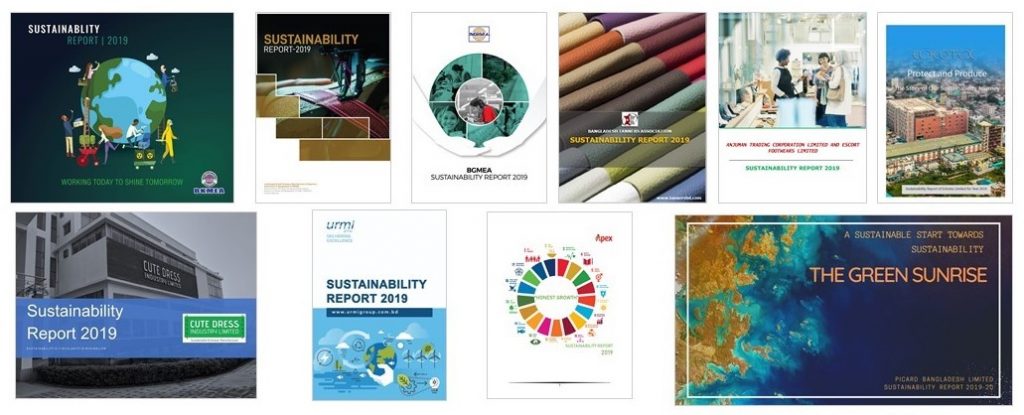The challenge
With a share of ten percent of the gross domestic product and more than 4,000 factories, the textile and leather sector is an important economic factor in Bangladesh – and thus has a significant influence on sustainable development in the South Asian country. The accident at Rana Plaza was a wake-up call: when the building collapsed in April 2013, more than 1,000 people lost their lives and more than 2,000 were injured – most of them textile workers.
A lot has happened since then: Factory owners, associations and the government have made efforts for more sustainable development. Textile companies invested an average of 500,000 euros in occupational safety and fire safety measures; associations set up monitoring and training programmes and the government committed itself to the United Nations‘ Agenda 2030. However, there are still extensive social and ecological challenges.
With regard to sustainability reporting in Europe, it has become clear sophisticated sustainability reports create transparency and have the power to initiate sustainable changes. The questions that arose against this background: Can association reporting contribute to a sustainable change in the textile and leather industry? Does sustainability reporting create awareness for sustainable management approaches and performance measurement? And can it motivate factory owners, employees and politicians to intensify existing efforts in the field of sustainable development?
The role of Stakeholder Reporting
In 2018, the Gesellschaft für Internationale Zusammenarbeit (GIZ) commissioned the GFA Consulting Group to develop a strategy for sustainable economic development in the textile and leather sector in Bangladesh. In August 2018, GFA approached Stakeholder Reporting and asked us to carry out part of the project. The task: to sensitize associations of the textile industry to the topic of sustainability and to establish a joint association reporting.
In the following weeks we held talks with the largest associations of the textile and leather industry in Bangladesh (BGMEA, BKMEA, BTA, LFMEAB) and presented the „business case“ for sustainability reporting. The response was consistently positive. All associations favoured the Global Reporting Initiative (GRI) approach as the standard for reporting. In addition, we developed a training and coaching concept together with the GFA with the aim of supporting the four associations in the preparation of their GRI report (Core).
But not only the associations were convinced. The business community also showed great interest in the project: we also accompanied the six pilot companies Apex Footwear Ltd., Cute Dress Industry Ltd., Echotex Ltd., Escort Footwear Ltd., Anjuman Trading Corporation Ltd., Urmi Group and Picard Bangladesh Ltd. on their way to their first GRI reports. All six companies supply European trading companies and were supported in the preparation process by local consultants, most of whom work for national and international audit firms (GSCS, Intertek, iota, SGS, TÜV Rheinland, PwC). Stakeholder Reporting trained the consultants on the topics of „materiality analysis“, „GRI reporting“ and „collection of sustainability data“ in order to close knowledge gaps in specific sustainability aspects.
During the one-and-a-half year project, Carolin Friedrich (Head of our Berlin office) and Karen Frauen (Senior Consultant) visited the companies and associations on site seven times, held 25 meetings and workshops and 45 webinars. In the end, ten GRI reports.

Das Resultat: Am Ende konnten zehn GRI Reports (Core) umgesetzt werden.
The solution
- Involvement of the management level of associations and companies
- Development of a training and education concept with a clear focus on results and concrete added value for associations and companies
- Consulting services with regard to text creation according to GRI, key figure collection and design process
- Training of local consultants in GRI reporting as a contribution to project success and market development
As an association, after the first reporting experience, we are planning to continue this practise in future as it is a tool for showing the organization’s accountability in the field of economy, environment and society towards the world. – BTA
The transformation potential
- Commitment of all associations and companies to consolidate and expand reporting
- Desire to expand national network structures and to establish an international dialogue between manufacturers and trade
- Against the background of the Supply Chain Act, an approach for more sectoral transparency, which is also applicable to other sectors, was created
